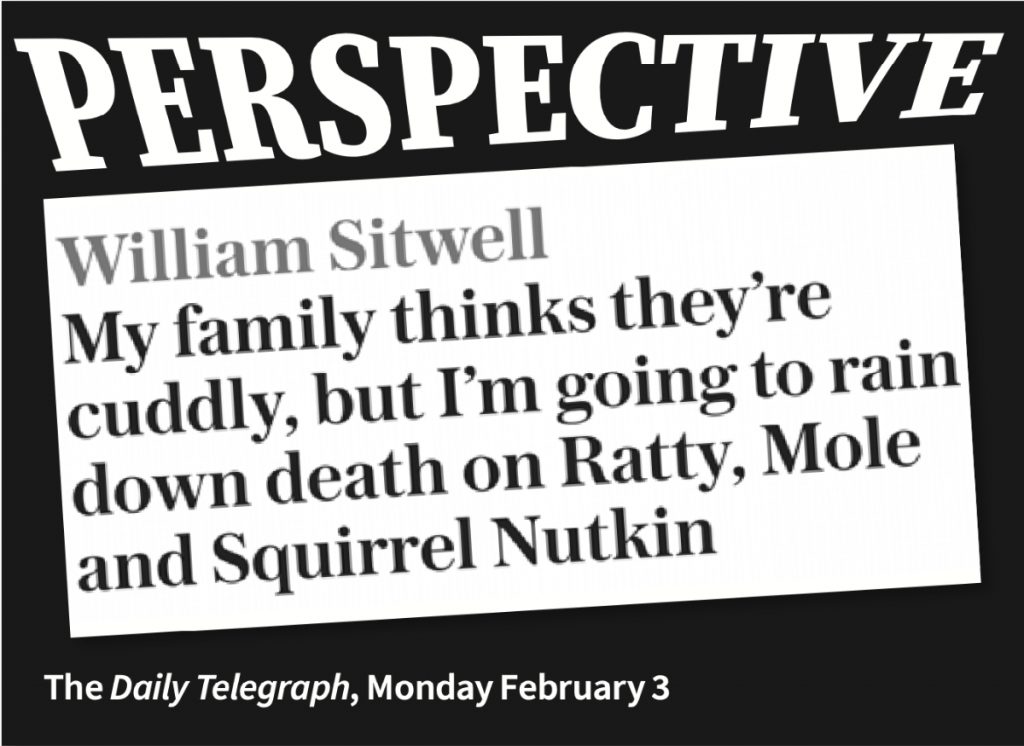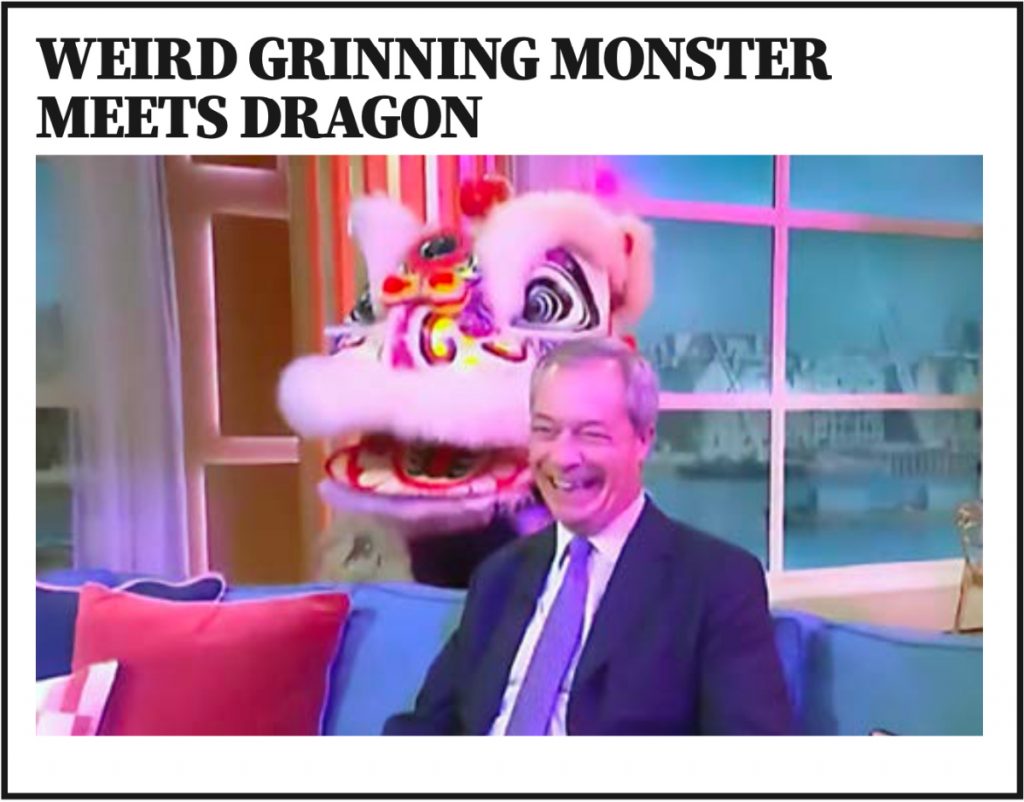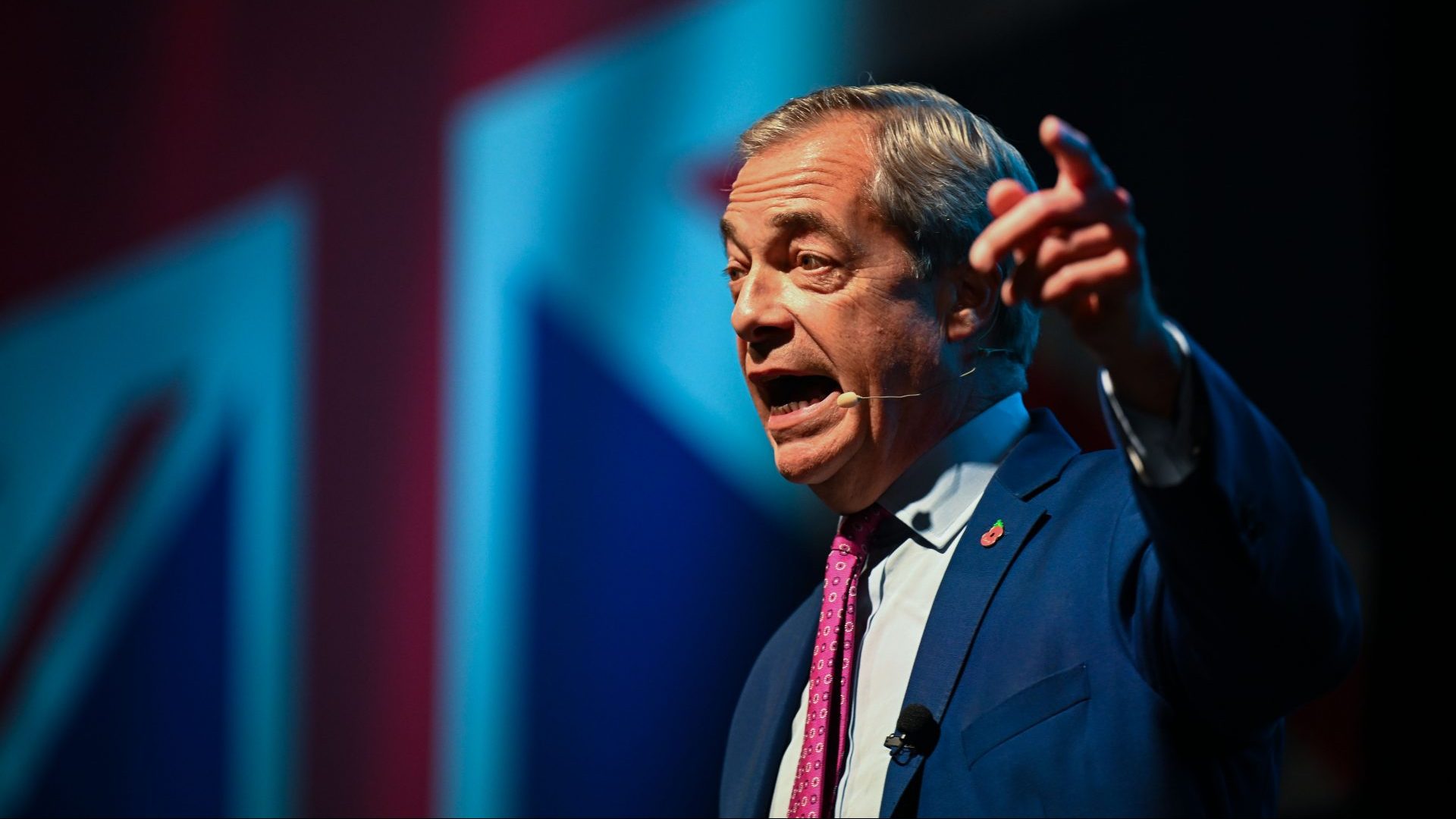Tanit Koch is right in “No, Elon. Here’s why Germans can’t ‘move beyond’ Auschwitz” (TNE #422). We certainly should never forget.
My German relatives carry this guilt. Shame about family members involved in Pogromnacht (the preferred term, I was told, for what we used to call Kristallnacht). Pride about family members who put themselves at risk, defending Jews or supporting their businesses. But shame is not healthy, and doesn’t generally encourage better behaviour.
What many Germans do and have done to come to terms with the fairly recent history of the Holocaust is admirable. I worry that we project so much of this on to Germans and Germany, and that this emphasis on that particular outrage somehow helps us to ignore other historical or current ones; that making it such a special case helps us to avert our eyes from other outrages; or helps us to ignore the ways in which today’s societies are repeating the collective insanities of 1930s Germany.
We should remember the Holocaust. Not as a horrific historical event that is firmly in the past, for which Germans alone were responsible; but as a warning from history that it could, all too easily, happen again, here and now.
Peter English
One of the most shocking things I ever witnessed was when, on Macquarie Street in Sydney, an old boy emerged from the hospital and I saw the number tattooed on his arm; it was brutally eloquent beyond words.
Elon Musk and his fellow travellers should read Frank Trentmann’s grimly brilliant Out of the Darkness. And now, with Gaza, universal darkness covers all.
Michael Rosenthal
My most tangible contact with what would have been my family is a slip of paper on which my father wrote their names, the transport number and, where known, the place where they were murdered by the Germans.
Do I hate the Germans as a result? Absolutely not. Were I to do so, I would fall into the same irrationality as their hate, and that in other European nations, of the Jews.
Conversely, the only lasting monument to the 1,000-year Reich is the stain of shame that is ineradicable. But it stands as a warning to all of us that some threats are persistent. Those chanting “from the river to the sea” might like to dwell on the words “never again”.
John Tanzer

Bongless bash
Patience Wheatcroft was, as usual, absolutely spot-on in her column on the calamity of Brexit (“Five years on”, TNE #422), with one exception: Leave supporters gathering in Westminster to celebrate our departure from the EU were, in fact, denied the chimes of Big Ben that they hoped would signal our liberation from the evil clutches of Brussels.
The Elizabeth Tower was undergoing repairs at the time and, despite a truly heroic campaign on the part of several Europhobic newspapers and a fundraiser spearheaded by the ERG’s Mark Francois and the group StandUp4Brexit that pulled in over £250,000, it couldn’t be readied in time. However, as my book, The Conservative Party After Brexit, notes, the country’s loss was charity’s gain as the money was eventually donated to Help for Heroes.
As for the Brexiteers, they made the best of their tragically bongless bash in Parliament Square by swinging to the strains of a jazz band playing, among other top tunes, The Final Countdown, the 1986 hit from Swedish glam-metal act Europe.
Who says irony is dead?
Tim Bale, Professor of Politics,
Queen Mary University of London
Angry young men
Surely the paradox missed in Zoë Grünewald’s “The kids are alt right” is that angry young men are supporting parties that if they come to power will only guarantee the advantages of boomers – yes I’m one – and take it out on migrants or other perceived outsiders.
This has just happened in the US; they put someone in the White House who will only benefit obscenely rich white men, although a few crumbs may fall off the table, and impoverished migrants will pay most of the price.
As for the UK, I’d scrap the right to buy and go all out to provide quality affordable social housing as we did after the war. Give young people homes of their own!
Christopher Harrison
While I agree that the young and especially young men are getting a “raw deal” and that my generation – I am 72 – are largely responsible for their situation, we only took advantage of the social and economic world we were presented with.
The real question is how do we collectively change the message and provide opportunities for the young? Instead of trying desperately to balance the books, the Labour government should break the bank and spend like never before on all the broken services that for far too long have undermined us all.
Adam Primhak
Bouquets and brickbats
“MAGA’s magic bullet” by Matthew d’Ancona was a great essay. Matthew has been on blistering form recently.
RS Prior
Again, I find myself baffled by Matthew d’Ancona’s critical judgment (he thought Sigourney Weaver’s Tempest was actually, in some way, good). I have just endured three hours plus of The Brutalist, to which he gave a rave review in TNE #422.
Never mind the pretentious (invoking Naipaul’s great novel!) illogicality of the plot, but where, oh where, was the “often apparent” “spirit of Saul Bellow” which he detected? I am very familiar with, and greatly admire, nearly all of Bellow’s novels, but could not, and in retrospect cannot, detect any such thing.
Leo Pilkington
By landing and sea
I’ve seen a different view to James Brown of the relationship between the stadium and the floatplanes at Lake Como (“The beautiful game”, TNE #422). Many, perhaps most, of the floatplanes don’t have any tourists or film stars as passengers – they don’t actually have any passengers at all.
They have an instructor and a student pilot on board, as Lake Como is one of very few places in Europe where you can be trained for a seaplane rating.
Where does the stadium come in? It’s forbidden to overfly it (whether or not it’s occupied, so this local rule is more severe than the usual low-flying rules).
When I did my flight test, the last thing to be tested was the forced landing, where the examiner closes the throttle and says “your engine has just failed” and you have to land safely. There’s a runway on the lake marked out by buoys which is used for take-offs and landings, and which boats know to steer clear of.
But… from where I was, and how high I was, and how fast I was, and with no engine, I reckoned that I couldn’t both avoid overflying the stadium and land on the runway. Not without doing a steep turn once past the stadium, which would be a fairly insane manoeuvre to attempt while low and slow and without an engine.
Priority number one was, of course, as always when in control of an aircraft, staying alive, but priority number two on this occasion was passing the test and I was pretty sure I’d be failed if I overflew the stadium.
So I told the examiner “I’m not going to make it to the runway; what I’m going to do is avoid the stadium and then land outside the runway”. And that’s what I did (without hitting any boats). And the examiner said I’d passed the test, so it appears to have been the correct decision.
Tim Ward
Are people born evil?
In TNE #422, Paul Mason makes a strong argument for changing the Contempt of Court Act, which prevented publication of Axel Rudakubana’s name and history before completion of his trial.
Paul describes Rudakubana as evil. He stabbed three children to death and tried to kill many more, in addition to making lethal chemicals. I would like to argue that, while Rudakubana’s behaviour would rightly be described as evil, depraved and inhuman, using the word to label the man is wrong.
No baby, at birth, has any innate desire to kill or cause damage to others. Every child is born with an urge to survive and all their behaviour is geared towards survival. Rudakubana’s attitude of not caring if he is alive or dead implies that he learned early on to be like that.
We are told that he became obsessed with genocide and violence while still of school age. I suggest that these behaviours are learned and fuelled by the environment in which he existed.
Maybe we should be looking at changing the environment in which our young people are raised – possibly beginning with online messages and the use of mind-altering substances.
Pat Brandwood
Not very Christian
I’m afraid that Nigel Warburton’s Everyday Philosophy on Don Cupitt (TNE #422) merely showed a very basic understanding of Christianity.
Completely orthodox modern theologians such as Rowan Williams could give tutorials on Darwin, Marx, Nietzsche, Freud etc. Moreover, medieval theologians such as Aquinas themselves viewed God not as a “being” within what exists, but as the basis for existence. And the view that humans can only speak of “God” by means of imperfect analogies is traditional Christian orthodoxy.
Given that so many now give credence to conspiracy theories, it is lazy to assume that Christianity’s decline in Europe has intellectual causes. Deep-seated cultural and sociological trends are probably more responsible.
Meanwhile, the practical challenge each of us faces, today as always, is to retain hope and commitment to what is good, however tough things get. In my 66 years I have not found that Christians are handicapped in meeting that test: we could do without patronising and ill-informed condescension.
Hugh Brodie
Cardiff, Wales
Getting the right drug
One correction to Alastair Campbell’s Diary (TNE #422): Wegovy and Ozempic are trade names for the same drug (semaglutide). The former is the name given to that drug as a weight-loss treatment, the latter for the treatment of diabetes. Otherwise, excellent article as usual.
Mark Curtis
Take your Leave
In her interview in TNE #419, Stella Creasy claims of the referendum that “the public are never wrong”. Yet polls have shown that many of the public chose Leave for reasons that had nothing to do with the EU.
Many did so as they wanted more money for the NHS. Many more did so as a protest against David Cameron and Tory austerity and the damage this had done to “left behind” towns.
Others chose Leave to stop immigration even though it was clear that leaving the EU would at the very least increase net migration.
With Leave implying that we would stay in the single market and not much mention at all of the customs union, the only real mandate to leave the EU in the way we did was Boris Johnson’s win in the 2019 general election. But there is no reason at all for this Tory mandate to apply to a Labour government.
Sally Churchill
Pontypridd, Wales

BELOW THE LINE
Comments, conversation and correspondence from our online subscribers
Re: Kemi Badenoch’s favourite Beatles song (Rats in a Sack, TNE #422). Yellow Submarine is an ode to mixed races living harmoniously together. The irony.
Steve Buch
Re: Isabel Oakeshott in Rats in a Sack (TNE #422). It is irony writ large that Reform want immigration to the UK stopped, yet it is OK for its deputy leader’s partner to be an “economic” migrant to Dubai. Surely her school fees rising to £150,000 is chicken feed when her partner is worth tens of millions?
William David Taylor
No doubt Isabel Oakeshott will integrate fully in Dubai and learn Arabic, send her kids to a mixed school with local children, perhaps even dress accordingly and join the local community mosque. Practise what you preach, eh?
Richard Riddle
Re: “Conclave and a real-life Vatican thriller” (TNE #422). What a fascinating article. We were already looking forward to the film, but even more so now!Norma Spark
Re: “50,000 football fans in one bar” (TNE #422). La Sagrada Familia is not a cathedral because it does not have a bishop’s throne (cathedra in Latin). Barcelona cathedral is a late medieval Gothic building in the Barri Gotic, the old quarter.
Rosemary Morlin
In “We need to talk about immigration” (TNE #421), Matthew d’Ancona writes “the core problem was that a fear of giving offence too often eclipsed a commitment to get things done”. This is a real problem for progressives. And it actually exacerbated the problem as it fails
to discuss or deal with the issues head on.
I was shocked last year to learn that a friend was voting for Reform in the general election. The reason? “Farage is the only one talking about what we are thinking about.” This is exactly what we have just witnessed in the USA. The majority of the population simply felt that the Democrats weren’t even talking about the issues that mattered to them. Trump was –so was forgiven any other perceived flaws. Progressives here mustn’t make the same mistake.
Peter Holpin
JOIN THE CONVERSATION
Subscribe and download our free new app to comment and chat with our writers



